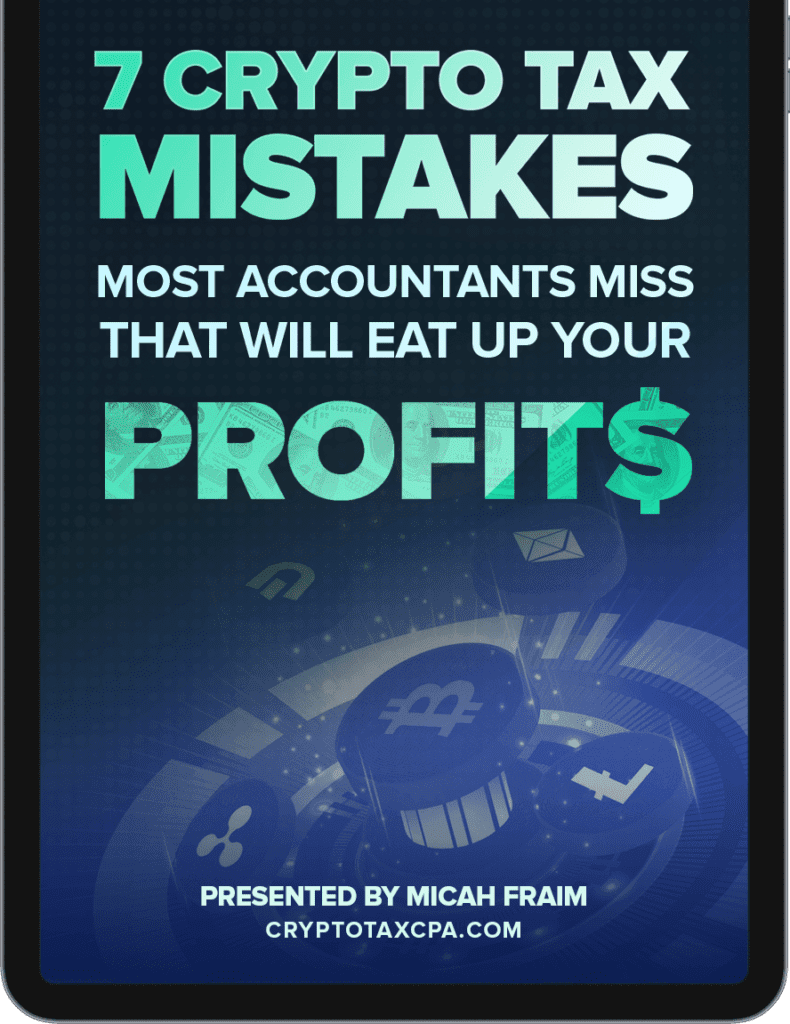Taking profits and setting aside a percentage of that income is one of the most important things you can do as part of your crypto tax planning. It’s simple (and often ignored), but it is one of the most important wealth preservation strategies available – especially during periods of market volatility.
The Importance for Cash Flow Planning for Taxes
So with the bear market (perhaps even another crypto winter) in full swing, the idea of large crypto profits might feel like a distant memory. But the volatility of crypto works both ways, so at some point people will start making money again.
And when that happens, it is crucial that you ensure you’re doing proper tax planning throughout the year – including cashing out part of your profits and setting that money aside for taxes.
Failing to do this can have absolutely catastrophic consequences.
A bull market year followed by a bear market the next – like what we’re seeing now and what we saw in 2017 during the ICO craze – provide some pretty perfect examples of these consequences.
Crypto PROFITS Can Cause Financial Ruin
A few months ago we picked up a client who had over $1 million in crypto profits the prior year. We won’t include too many details for privacy reasons (and we’ll also change a few details just for good measure), but they made most of this income from play-to-earn (P2E) games, nodes, and capital gains from token trading. This income generated a tax bill of about $500k.
The problem is that they reinvested all of it back into the market, especially into the NFTs for the P2E game that was the source of a lot of their income.
Unfortunately, as is all too common in P2E games, the in-game economy collapsed. The token’s value went down nearly 99% from its peak. And with that token drop, the value of the NFTs they purchased went down as well. The value of this type of NFTs is largely tied to the amount of income they can generate. As that earning potential goes down, so does the value of the NFTs themselves.
The rest of the market then crashed as well, which reduced the earnings on the rest of their portfolio. Their income plunged from thousands of dollars a day to less than $100 a day.
Unless things turn around – either in the greater market or the game – they’re going to need to start liquidating assets in their portfolio to pay the taxes. And again – unless things turn around – that liquidation will be happening at one of the worst times imaginable.
So just to recap, this person has:
- A half a million dollar tax bill and no money to pay it
- No income to pay the taxes
- A bunch of devalued, illiquid NFTs
- The remainder of their portfolio also underwater
If they are able to pay the bill – which is uncertain given the illiquidity of NFTs – doing it might wipe out their entire crypto portfolio.
How to Avoid This Tax Trap
Unfortunately, this is not an unusual example at all. A lot of the new clients we are seeing right now are in similar situations.
And with all of them, we’re working to reduce their tax bills – and with some pretty great success in a number of cases. But with this level of income and no planning/maneuvering having been done throughout the year, the taxes due are still massive.
So how could this have been avoided?
There’s all sorts of strategies we can implement to reduce the amount of tax you’re paying – entity structure, loss harvesting, strategizing on the timing of transactions, figuring out what we can expense, etc. – but in this case what would have preserved their wealth more than anything else is really simple:
Take profits as you go.
These people were convinced that:
- Their project’s tokens and NFTs were going to keep appreciating in value
- The greater crypto market was going to continue to go up
Unfortunately, neither of those things happened.
If they had just done tax planning throughout the year and every time they had a transaction had taken 40-50% of the profits and converted it into USDC* or fiat, they would be fine right now.
Sure, they’d still have to pay the taxes. And they’d still have some devalued NFTs and tokens. But they’d at least have the money to pay the tax bill and would be under no pressure to touch the rest of their portfolio.
Instead, they have twice as many underwater NFTs/tokens, a $500k tax bill, and no way to pay it. That sad reality might wipe out the entirety of their portfolio.
This entire situation could have been avoided with tax planning, especially making sure they took profits as they went and set the funds aside for April 15th.
*We mentioned USDC because it appears to be the most stable of the stablecoins, but it is always worth noting that stablecoins are not currency and are not FDIC insured. They can and do fail. We most notably saw this with the crash of Terra Luna’s UST, but it’s far from the only example. We also saw it with the 2021 crash of IRON/Titanium. And even as we’re writing this article, Tron’s USDD has been depegged for nearly a week – although this is a new project and it’s unclear how that situation will resolve.
There are different types of stablecoins and each one is backed by different protocols/companies. They are not created equal, so DYOR. But also understand the inherent risk associated with stablecoins in general – especially compared to having actual cash in the bank. For a more in-depth explanation, look at our discussion on the risks of stablecoins.
Any accounting, business, or tax advice contained in this communication, including attachments and enclosures, is not intended as a thorough, in-depth analysis of specific issues, nor a substitute for a formal opinion, nor is it sufficient to avoid tax-related penalties.


